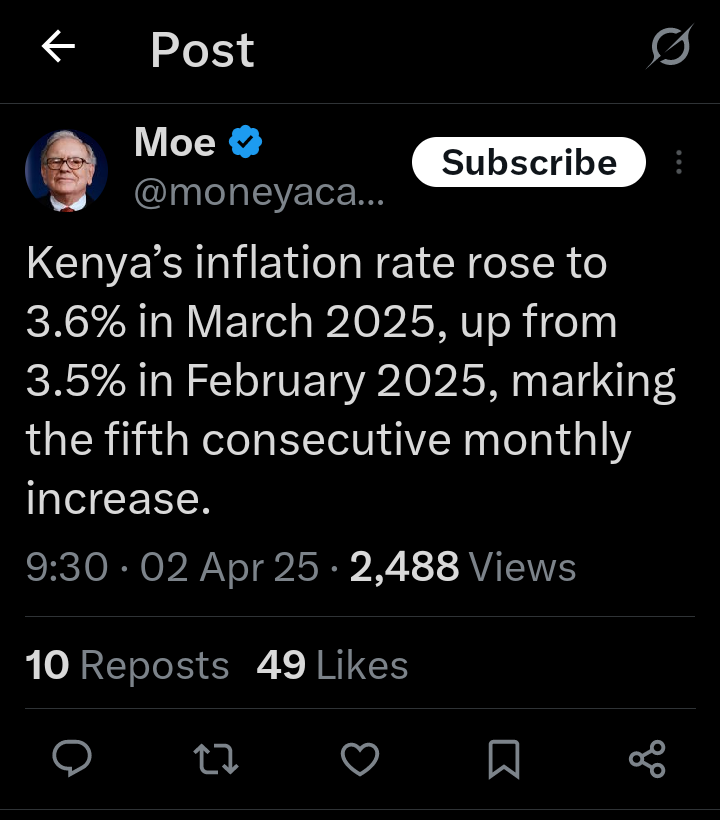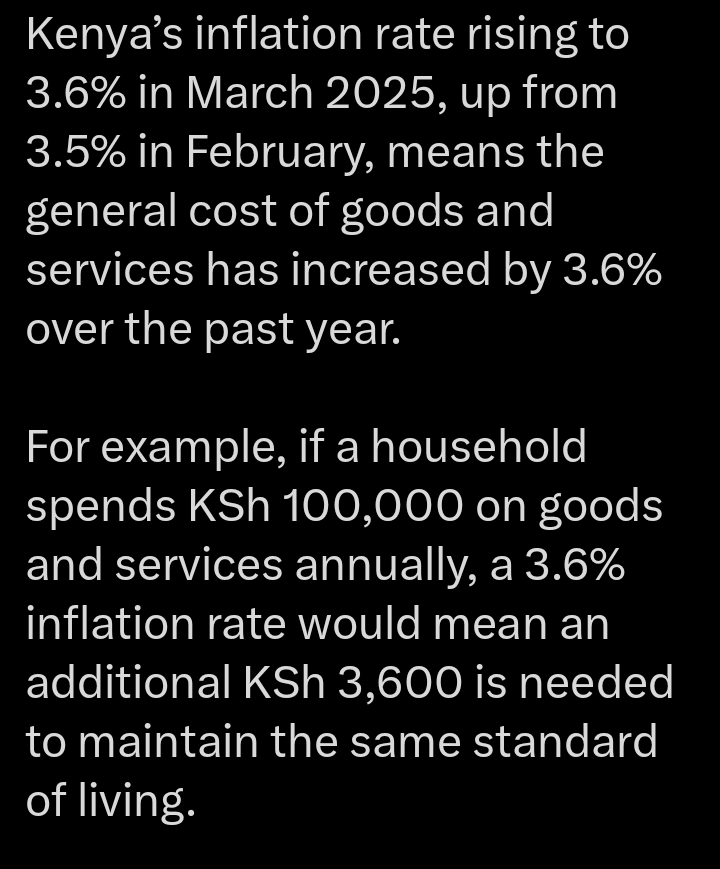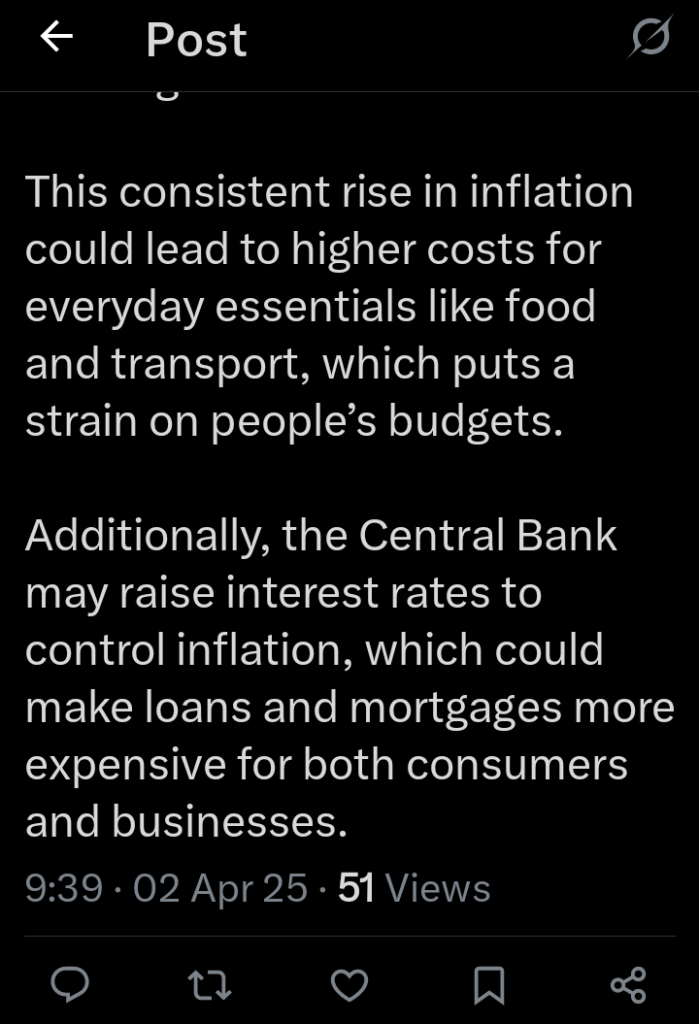Kenya’s inflation rate has continued to rise, reaching 3.6% in March 2025 from 3.5% in February. This marks the fifth consecutive month of inflation increasing, showing that the cost of goods and services is gradually becoming more expensive.
The rise means that compared to a year ago, Kenyans are now paying 3.6% more for the same goods and services.
For a household that spends KSh 100,000 per year, the increase means they now need an extra KSh 3,600 to afford the same items. This may seem like a small percentage, but for many Kenyans, especially those earning low incomes, any increase in costs affects their daily lives.
Prices of basic items such as food, transport, and rent may rise, making it harder for people to afford necessities. Many households already struggle with high living costs, and any further increase makes it worse.

One major concern is the rising cost of food. Many families spend a significant portion of their income on food, and even a small increase in prices affects their ability to buy enough. The cost of transportation is also likely to rise, as higher fuel prices and increased operational costs for transport companies get passed down to consumers.
This affects workers commuting daily and businesses that rely on transportation to move goods.The Central Bank of Kenya (CBK) may respond to this rising inflation by increasing interest rates to slow down inflation.
If this happens, the cost of borrowing will go up, making loans and mortgages more expensive. Businesses that rely on loans for expansion may struggle, and individuals looking to buy homes or invest in property will find it harder due to higher loan repayments.
The inflation trend also has an impact on savings and investments. As the cost of living rises, people may save less because they have to spend more on essentials. This affects long-term financial plans and can slow down economic growth. Investors may also become cautious, especially if interest rates rise, which could reduce business activity.

The government may need to step in with policies to stabilize prices, such as reducing taxes on essential goods or increasing subsidies on food and fuel. However, these measures come with challenges, including budget constraints and economic trade-offs. For ordinary Kenyans, the immediate concern is how to cope with the rising cost of living.

Many may have to adjust their spending habits, look for additional income sources, or cut back on non-essential expenses. If inflation continues to rise, it could lead to even greater economic hardships for many people across the country.





















Add Comment